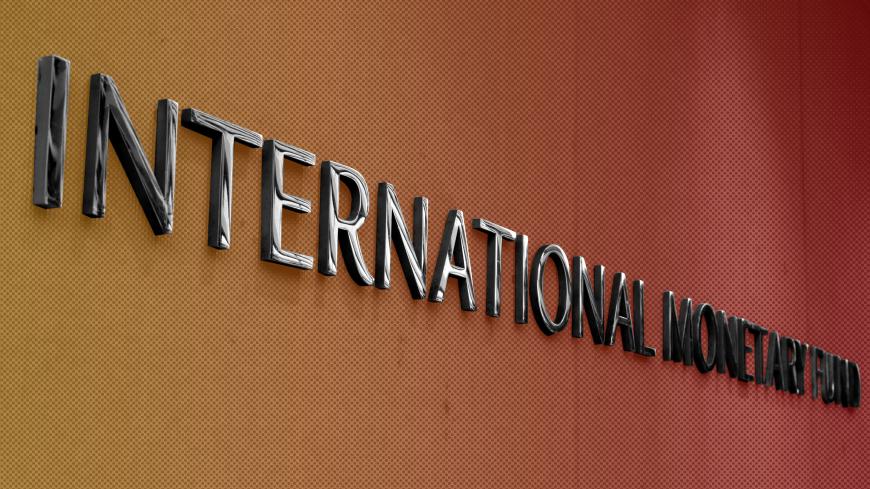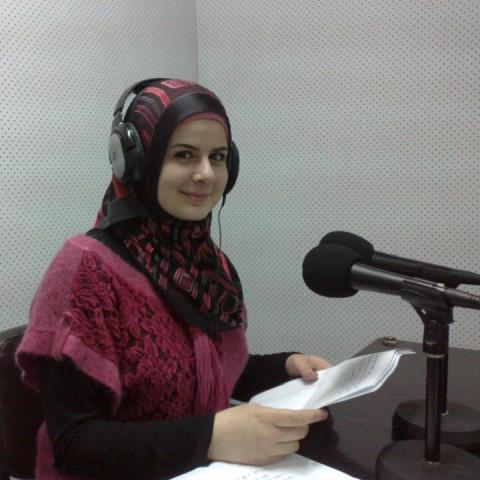Lebanon will officially ask the International Monetary Fund (IMF) for technical help to restructure its public debt and solve its financial and economic crisis, a government source told Reuters on Feb. 12.
The new Lebanese government headed by Prime Minister Hassan Diab won a confidence vote in parliament 63-20 on Feb. 11, but the financial and monetary crisis plaguing Lebanon, the third-highest indebted emerging country in the world, seems to be getting worse by the day.
Despite reassurances from Central Bank Governor Riad Salameh that depositors’ money would not be affected and that the exchange rate of the Lebanese pound would not exceed about 1,500 Lebanese pounds to the dollar, Lebanese citizens are worried about their bank deposits amid tightened banking withdrawal restrictions.
Banks in Lebanon are only allowing clients to withdraw $200 to $300 per week from their personal accounts, and they have imposed restrictions on international transfers, which affected among others Lebanese students completing their studies abroad. The students need money from their parents in Lebanon to pay tuition fees and other costs.
The Lebanese are voicing concerns over their dwindling purchasing power with the increasing exchange rate of the dollar in the black market. The exchange rate stood at 2,300 pounds in the Bekaa on Feb. 11.
Lebanon has a Eurobond issue worth $1.2 billion that matures in March and other bonds worth $700 million and $600 million that mature in April and June respectively.
Ghassan al-Ayash, a former deputy governor of the Central Bank of Lebanon, told Al-Monitor, “Lebanon is facing a banking and monetary crisis not witnessed since the establishment of the Lebanese state.”
He said the new government must not bury its head in the sand and deny the existence of a fateful crisis that won’t be weathered in a matter of months, as it is a crisis that will require years to be solved.
Ayash said about $60 billion of the foreign currency funds that banks used to invest in the public sector in Eurobonds and central bank deposits “have evaporated.” This figure accounts for 23% of the total assets of banks and 36% of their deposits.
He said the public sector used the funds to finance the trade balance deficit, make international transfers, pay off state debts in foreign currencies and meet the high demand for foreign currency, which resulted from citizens’ loss of confidence in the Lebanese pound.
Parliament Speaker Nabih Berri revealed Feb. 5 during a meeting with a number of members of parliament that five banks have transferred funds estimated at $2.3 billion from the personal accounts of their owners abroad, despite the restrictions.
However, Samir Hammoud, the chairman of the Banking Control Commission, said in an interview with Kuwait's al-Rai newspaper that this statements was inaccurate. He said, “There is information confirming that all banks, and not only five, have proceeded to transfer this rough amount to banks in Switzerland between Oct. 17, 2019 and Jan. 14, 2020.”
A banking source told Al-Monitor on condition of anonymity that Central Bank foreign reserves amount to about $31 billion, of which $19 billion are mandatory reserve requirements that cannot be used.
This, the source said, means that paying off the Eurobonds would further shrink the reserves at a time when the country is in dire need of dollars to buy oil derivatives, wheat and medicines.
In a Jan. 9 TV interview, Salameh told the local MTV station that the Central Bank funded the state in return for reforms, and such funding was made within a legal framework as the Central Bank is entitled to meddle in the market and purchase treasury bonds.
During the same interview, Salameh also said no bank will go bankrupt.
According to data published by the central bank, the liquidity of the Lebanese pound in hand decreased by 297 billion pounds between Jan. 17 and 23 as a result of a decrease in the volume of deposits by 406 billion pounds and an increase worth 109 billion pounds in the volume of cash in circulation. Foreign currency deposits also decreased by $227 million during the same week.
According to a study prepared by Lebanese economists and published by the Carnegie Middle East Center, gross debt mushroomed to $90 billion by the end of 2019 — the equivalent of 150% of gross domestic product, or GDP. Experts pointed out that since 1980, there have been 111 cases of sovereign debt restructurings — roughly three a year.
Sami Nader, the director of the Levant Institute for Strategic Affairs, participated in the preparation of this study. He told Al-Monitor that restructuring public debt must be coupled with reforms that consist of rationalizing public spending, ridding the state of the electricity burden, reconsidering both the number of workers in the public sector and the pension systems and fighting tax evasion.
Electricity constitutes a major burden for the state because it is costing about $850 million to rent Turkish power ships for five years. Phalange party leader Sami Gemayel said in a press conference dedicated to the electricity issue that there is between $600 and $800 million “lost” in the electricity plan that relies on power ships.
A report by Bank Audi showed there are a lot of unpaid electricity bills and electricity theft operations. The report said tax evasion in Lebanon amounted to about $5 billion in 2017, equivalent to 10% of GDP.
Nader said he believes that “Lebanon has entered the stage of bankruptcy.” He and the experts who prepared the research paper called on the new government to immediately initiate a plan to proactively address the unsustainable debt burden, especially as Lebanon suffers from three concurrent crises, namely: the banking and insolvency crisis, the scarcity of liquidity and the crisis in the balance of payments and currency.
He said the gap between the US dollar supply and demand will reach $8 billion this year. In the absence of a solution to the problem, Lebanon will have difficulty paying off its foreign debt and will face a shortage of imported goods. Add to this the crisis in the public finances, as the public deficit stood at 10% of GDP during 2019.
Nader voiced concerns over the worsening social crises resulting from economic collapse that would lead to wealth destruction and increase the poverty rate to more than 40%. This could leave 1.6 million Lebanese unable to secure their basic non-food needs. There are also concerns over an increase in unemployment as the middle class dwindles.
On Feb. 5, UN Coordinator in Lebanon Jan Kubitsch said during a meeting with a group of journalists that any assistance to Lebanon would depend on whether or not Lebanon carries out the reforms that the International Support Group called on it to implement. These reforms consist of addressing the electricity sector, fighting corruption and tax evasion and supporting the independence of the judiciary.
Minister of Finance Ghazi Wazni told MTV on Jan. 22 that the new government is working on preventing collapse from turning into bankruptcy. However, he added, "The financial and monetary crisis plaguing Lebanon is unprecedented, and should it linger on, we would be headed toward bankruptcy."






